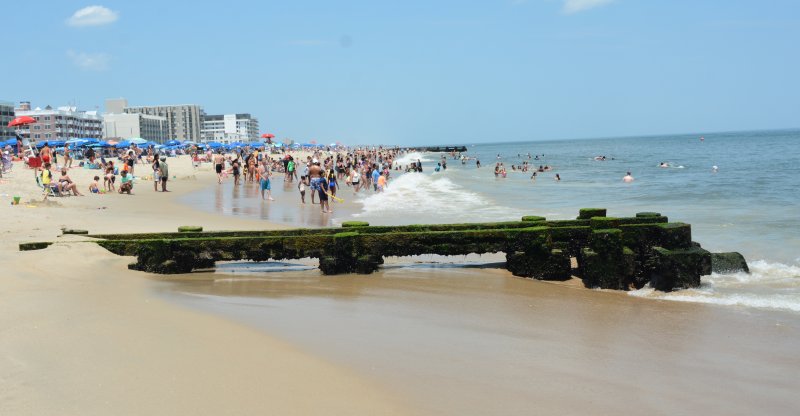DNREC on water advisories: Better safe than sorry

My family and I were among the thousands of people who spent some portion of their day July 3 in the ocean waters off Rehoboth Beach. It was pretty much a perfect beach day. The sun was warm, but there was a breeze. There were waves, but the water wasn’t too rough and the rip wasn’t strong, so the kids and I spent hours in the water.
Soon after we got home, the state issued a recreational water-quality alert for the waters in the immediate area off Rehoboth Avenue. Test results showed elevated bacteria levels that were 100 times higher than the minimum threshold to trigger the warning.
The alert was the first this year, but it wasn’t the first time ever. I was a little alarmed the bacteria count was so high, so I reached out to the Delaware Department of Natural Resources and Environmental Control for some more information.
Michael Globetti, DNREC spokesperson, explained the process.
Once a week, usually Mondays, DNREC samples 26 beaches along the Delaware Bay and Atlantic Ocean coastline. Additionally, six of the most popular beaches, including Rehoboth Avenue, are sampled a second time during the week, usually Wednesdays. Water samples are placed onto a nutrient-rich medium and incubated for 24 hours to count how much bacteria has grown over that time.
While it is possible to use other, quicker methods to analyze water for bacteria, such as evaluating water for the DNA signatures of bacteria, these quicker methods would not tell the recreational water program whether the bacteria is still viable, said Globetti. To put it more succinctly, he said, pathogens that cause illness must be viable – not just genetically detectable – and using a culture-based fecal indicator bacteria method has been determined the best way.
Water-quality conditions at ocean beaches change quickly, with elevated bacteria typically being flushed away quickly by tides. For this reason, the average of the previous 30-day sampling results is the best indicator of recreational water quality. This held true for the test at Rehoboth Avenue. A sample was taken the day after the first sample, and the results showed bacteria counts well below the triggering threshold.
The Rehoboth Avenue sample that triggered the alert was taken during a heavy rainstorm. Globetti said the high sample in Rehoboth was an anomalous result for an ocean site, though similarly high results have been seen in other types of water bodies such as rivers and creeks, also following heavy rainfall. He said high bacterial results, in line with the results seen in Rehoboth, were also observed at monitoring locations in surrounding states that experienced the same heavy rainfall.
Even with the high result that prompted the swim advisory, Rehoboth Avenue continues to meet the standard for the 30-day average, which at 21, is below the standard of 35, said Globetti. This indicates the general recreational water quality of Rehoboth Avenue continues to be good, he said.
The primary purpose of the routine monitoring is to serve as a reference point for the public, including producing a long-term dataset with a geometric mean, said Globetti. However, he said, in doing so, DNREC wants to ensure that Delawareans are aware of any elevated single-sample results for the sake of public transparency.
A single sample that exceeds the standard is considered to be an indication of an elevated risk of illness to the public and, in keeping with its mission to protect public health, DNREC wants to alert the public that an elevated sample result has been detected, said Globetti.
Joke of the Week
Most mornings, I’m out running before the sun comes up. There are a few people out at that time of day, but it’s mostly animals I see – cats, foxes, beavers, herons. The other morning, just as I was about to start, a skunk waddled itself out from under a bush about 2 feet away. Neither one of us was expecting the other to be there. I don’t know who moved away faster. I know I got lucky I didn’t pull a muscle when I jumped away so quickly. It’s only funny because I didn’t get sprayed. As always, send jokes to cflood@capegazette.com.
Three skunks are walking down a street together when they come to an intersection ...
Skunk one says, "My instincts tell me to go left."
Skunk two says, "My instincts tell me to go right."
Skunk three says, "Hey, my end stinks too, but it doesn't talk to me.”
Chris Flood has been working for the Cape Gazette since early 2014. He currently covers Rehoboth Beach and Henlopen Acres, but has also covered Dewey Beach and the state government. He covers environmental stories, business stories and random stories on subjects he finds interesting, and he also writes a column called Choppin’ Wood that runs every other week. He’s a graduate of the University of Maine and the Landing School of Boat Building & Design.






















































